There for you, serving and safeguarding customers, communities, and people around the world.


There for you, serving and safeguarding customers, communities, and people around the world.

With operations spanning security, logistics, and facilities management, G4S Kenya is no stranger to complexity. At the heart of its procurement transformation is Valentine Salim, National Procurement Manager, who brings a strategic lens to sourcing, supplier development, and digital innovation.In this wide-ranging interview, Valentine shares her unconventional career journey from hospitality to high-stakes procurement, offering insights into how her team supports operational excellence across multiple functions. From driving localisation and supplier performance to embedding risk and sustainability into every category, her approach is both pragmatic and future-focused. We explore how procurement at G4S is evolving into a catalyst for growth, resilience, and social impact, not just in Kenya, but as a model for the wider region.


Can you share your career journey and what led you to your current role as National Procurement Manager at G4S Kenya? What experiences have most shaped your leadership style in procurement?
My career journey began unconventionally, starting as an Admin Secretary in the hotel industry. While the role provided a strong foundation in operations and customer service, I quickly developed a keen interest in the strategic decisions behind resource allocation and cost optimisation. This curiosity truly ignited when I transitioned into the real estate sector. I began as a Procurement Specialist, where I was immediately immersed in the tangible impact of efficient sourcing on project success.
This initial exposure was pivotal; I saw how strategic purchasing could directly influence profitability and quality, sparking a passion for the field. I steadily progressed and rose to become a Senior Procurement Manager within real estate, continually honing my skills in negotiation, supplier management, and strategic planning.
These foundational experiences culminated in my current role as the National Procurement Manager at G4S Kenya, overseeing procurement operations across the entire country, a significant step that allows me to apply my expertise on a larger, more complex scale. My leadership style has been profoundly shaped by this progression, emphasising analytical thinking, collaborative problemsolving, and a relentless focus on value creation, with the understanding that effective procurement is a cornerstone of operational excellence.
G4S operates in security, logistics, and facilities management. Each with unique procurement demands. How does your procurement team support operational excellence and service delivery across these functions in Kenya?
Procurement is a strategic enabler of operational excellence and superior service delivery across our diverse functions, security, logistics, alarm response, and cash in transit. Our team collaborates closely with each business unit to understand their unique requirements and operational challenges. We go beyond transactional purchasing, focusing on strategic sourcing that guarantees the timely supply of high-quality, compliant goods and services.
For security and alarm response, this means ensuring our personnel have access to the best equipment, uniforms, and cutting-edge alarm systems. In logistics and cash in transit, our role includes optimising fleet maintenance and fuel efficiency, ensuring the integrity of specialised vehicles, and managing secure packaging.
By developing robust supplier relationships, implementing stringent performance metrics, and leveraging technology for spend visibility, we minimise disruptions, enhance efficiency, and directly contribute to our ability to deliver consistent, reliable services to our clients.
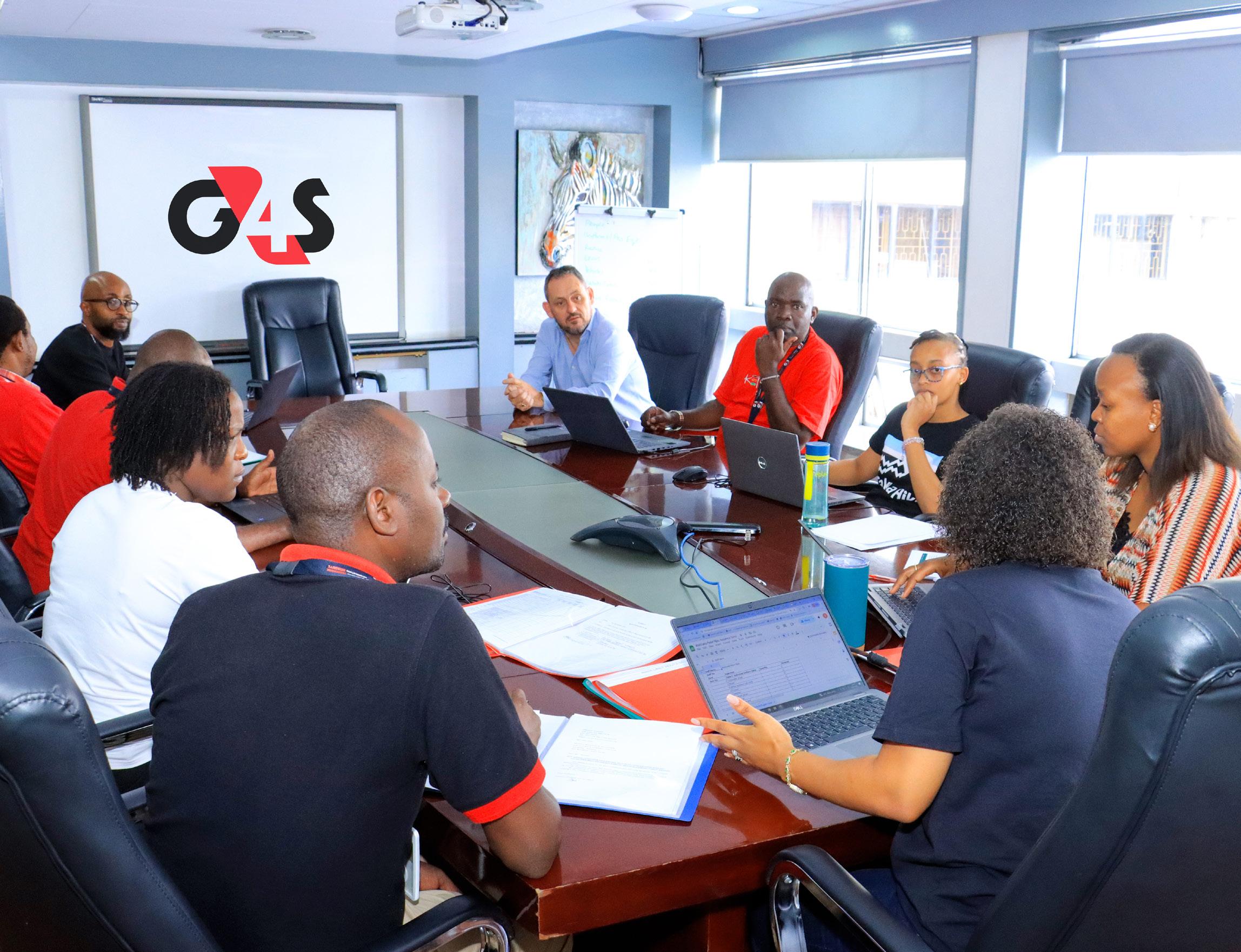
Procurement in security services involves a wide range of categories, from uniforms and equipment to fleet and technology. What sourcing strategies have you implemented to balance cost, quality, and compliance across these diverse categories?
Strategic sourcing in the security sector demands a meticulous balance of cost, quality, and compliance across a broad range of categories. Our approach is multi-faceted. For critical items such as security equipment and technology, we prioritise quality and reliability, engaging with pre-qualified global and local suppliers known for their adherence to international standards and certifications. This often involves long-term framework agreements and rigorous testing protocols.
For high-volume categories like uniforms, we adopt specific category management strategies, consolidating demand, ensuring durability and comfort, and securing competitive pricing from trusted manufacturers who meet our ethical sourcing criteria. In the case of fleet procurement, we use targeted strategies to acquire new vehicles, leveraging our purchasing power to negotiate optimal pricing while ensuring strict compliance with operational, safety, and environmental standards.
Compliance is non-negotiable. Our sourcing strategies embed thorough vendor vetting, clearly defined ethical guidelines, and strict adherence to both local and international regulatory requirements, ensuring transparency, accountability, and performance across the entire supply chain
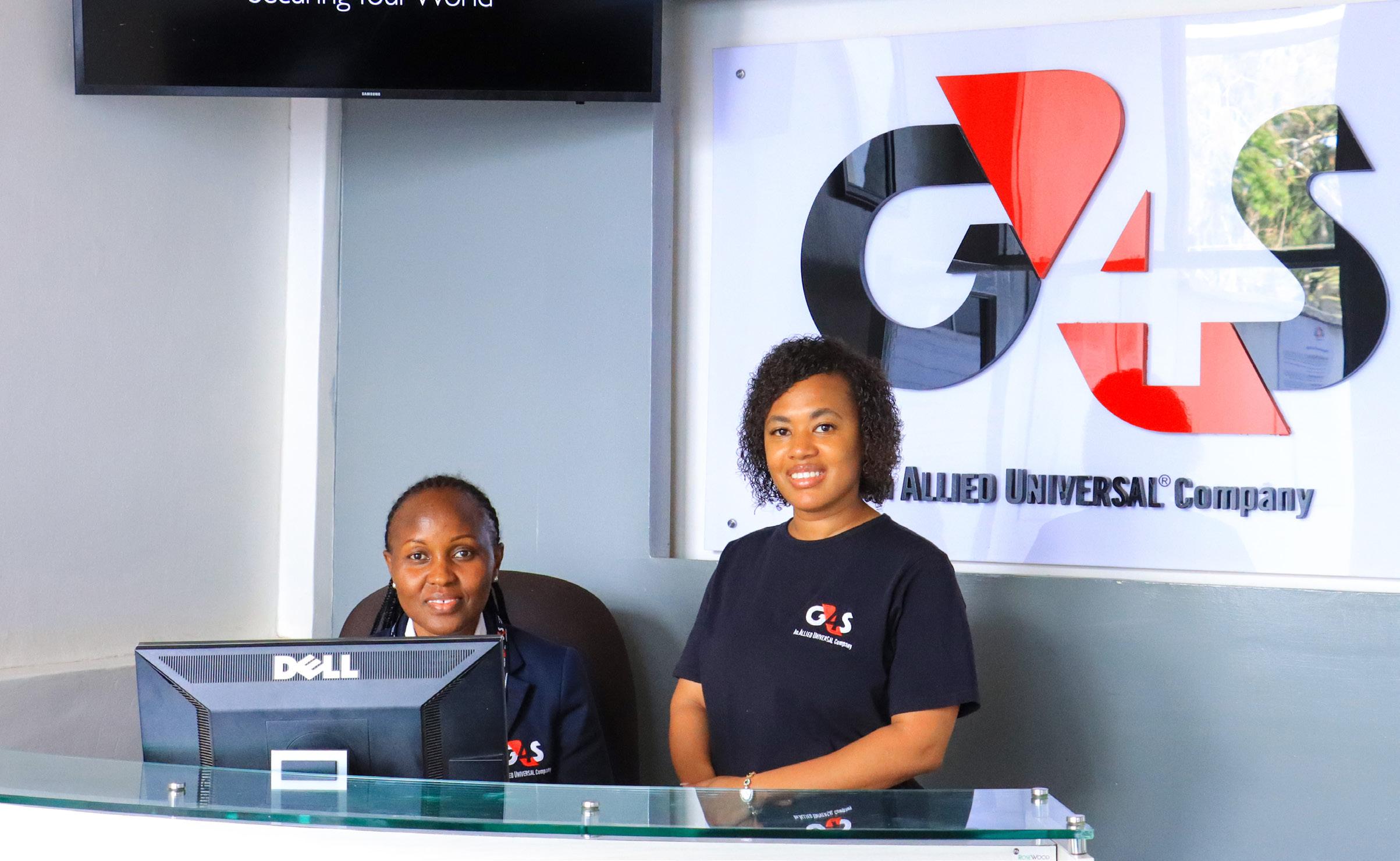

G4S depends on reliable partnerships. What strategies do you use to develop strong supplier relationships, and how do you measure and manage supplier performance to ensure consistent quality?
Developing strong, reliable supplier relationships is fundamental to our operational success. Our strategy is centred on fostering collaborative partnerships based on mutual trust and transparency, rather than purely transactional interactions. We engage in open communication, share our longterm business objectives, and actively seek suppliers’ insights on market trends and innovations. This includes regular business reviews, joint planning sessions, and structured feedback mechanisms.
To measure and manage performance, we’ve implemented a robust Supplier Performance Management (SPM) framework. This involves setting clear Key Performance Indicators (KPIs) tailored to each category, covering delivery timelines, quality of goods and services, responsiveness, and compliance with contractual obligations. Performance is continuously monitored through scorecards, regular audits, and end-user feedback. This approach enables us to identify improvement areas, address issues proactively, and recognise top-performing partners, ensuring consistency, accountability, and long-term value across our supply chain.
As a major employer in Kenya, how does G4S support local supplier development, and what role does procurement play in driving socio-economic impact through local sourcing initiatives?
As a significant employer and economic contributor in Kenya, we are committed to fostering local supplier development and generating socio-economic impact through our procurement practices. Our procurement team plays a pivotal role by actively identifying and onboarding local businesses, particularly Small and Medium Enterprises (SMEs), into our supply chain.
We support these partners through capacity-building initiatives, including workshops on tendering processes, quality control, and compliance standards, enabling them to meet our rigorous requirements. Additionally, we collaborate with financial institutions to provide SME vendors with access to financial services and tailored training programmes, supporting both their growth and operational resilience. Where feasible, we also offer favourable payment terms to help maintain healthy cash flow.
By prioritising local sourcing for categories such as uniforms, cleaning supplies, and maintenance services, we stimulate local economies, generate employment within communities, and help build more resilient domestic supply chains. This commitment to localisation not only aligns with our corporate social responsibility goals but also enhances our agility and responsiveness on the ground.
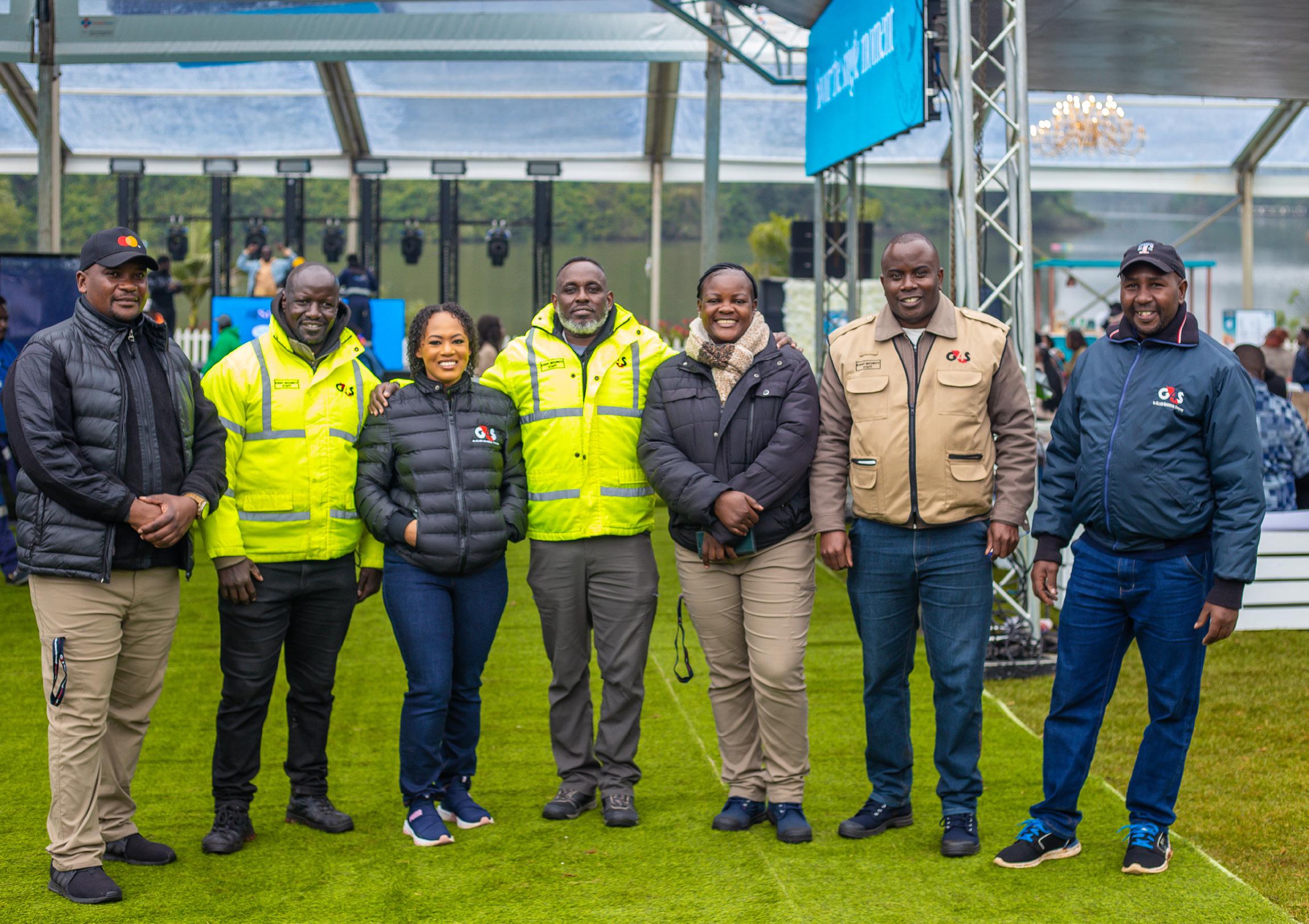

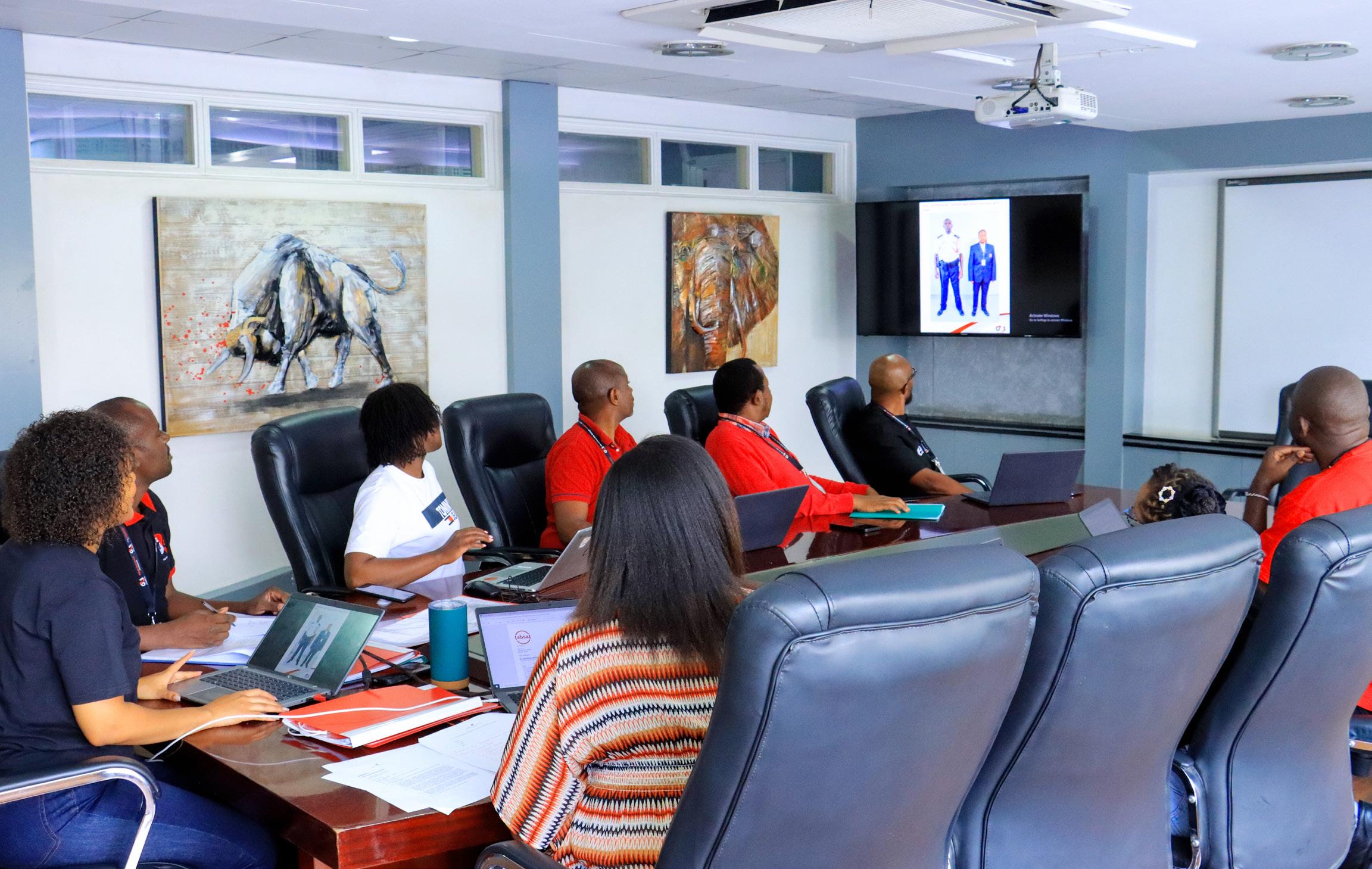
Given the nature of G4S’s work in security and high-stakes logistics, how do you manage procurement risk, especially with regard to supply continuity, vendor vetting, and regulatory compliance?
Managing procurement risk is paramount, particularly in sectors like security and high-stakes logistics, where service continuity is non-negotiable. Our strategy integrates proactive risk mitigation across three core areas: supply continuity, vendor vetting, and regulatory compliance.
To ensure supply continuity, we maintain strategic stock levels for critical goods and employ dualsourcing strategies to reduce dependency on single suppliers. We also diversify our supplier base geographically to safeguard against regional disruptions and strengthen our overall supply resilience. Vendor vetting is rigorous and extends far beyond financial checks. We evaluate operational capacity, ethical practices, and track record, often involving site visits and thorough due diligence. Only partners that demonstrate reliability and alignment with our standards are onboarded.
Regulatory compliance is embedded throughout the procurement lifecycle, from contract drafting to ongoing performance monitoring. We ensure that all suppliers comply with relevant local and international laws, industry standards, and G4S’s internal governance policies. Continuous monitoring and structured risk assessments, combined with strong contractual governance, allow us to anticipate and mitigate potential threats before they escalate.
This layered, integrated approach ensures that procurement acts not only as an operational function but as a key driver of business continuity and service integrity across all critical areas.
Sustainability is a growing focus in procurement globally. How is G4S Kenya integrating environmental and ethical considerations into its procurement practices, especially in areas like fleet operations, uniforms, and energy use?
We are increasingly embedding environmental and ethical considerations into our procurement practices, aligning with both global sustainability goals and G4S’s broader corporate responsibility agenda.
In fleet operations, we prioritise suppliers that offer fuel-efficient vehicles and are actively exploring hybrid and electric alternatives where infrastructure allows. We also partner with maintenance providers that follow environmentally responsible practices, including the safe disposal of waste, lubricants, and vehicle parts.
When it comes to uniforms, we’re reviewing supplier options that incorporate recycled or sustainably sourced materials, while ensuring that all manufacturers uphold fair labour standards. Ethical sourcing is fundamental, and we engage only with vendors who demonstrate full compliance with our code of conduct, including commitments to human rights, fair wages, and anti-corruption principles.
On the energy front, our procurement decisions increasingly consider suppliers offering energyefficient equipment for our facilities, and we continue to explore renewable energy solutions to reduce operational emissions at our offices and key sites.
To uphold these standards, we map suppliers based on risk levels and engage both local and international third-party assessors to conduct detailed audits. If any supplier is found to be linked to unethical practices, such as human rights violations, they are immediately blacklisted and removed from our supply chain. This zero-tolerance approach ensures that our procurement function reflects our unwavering commitment to responsible, sustainable business practices.
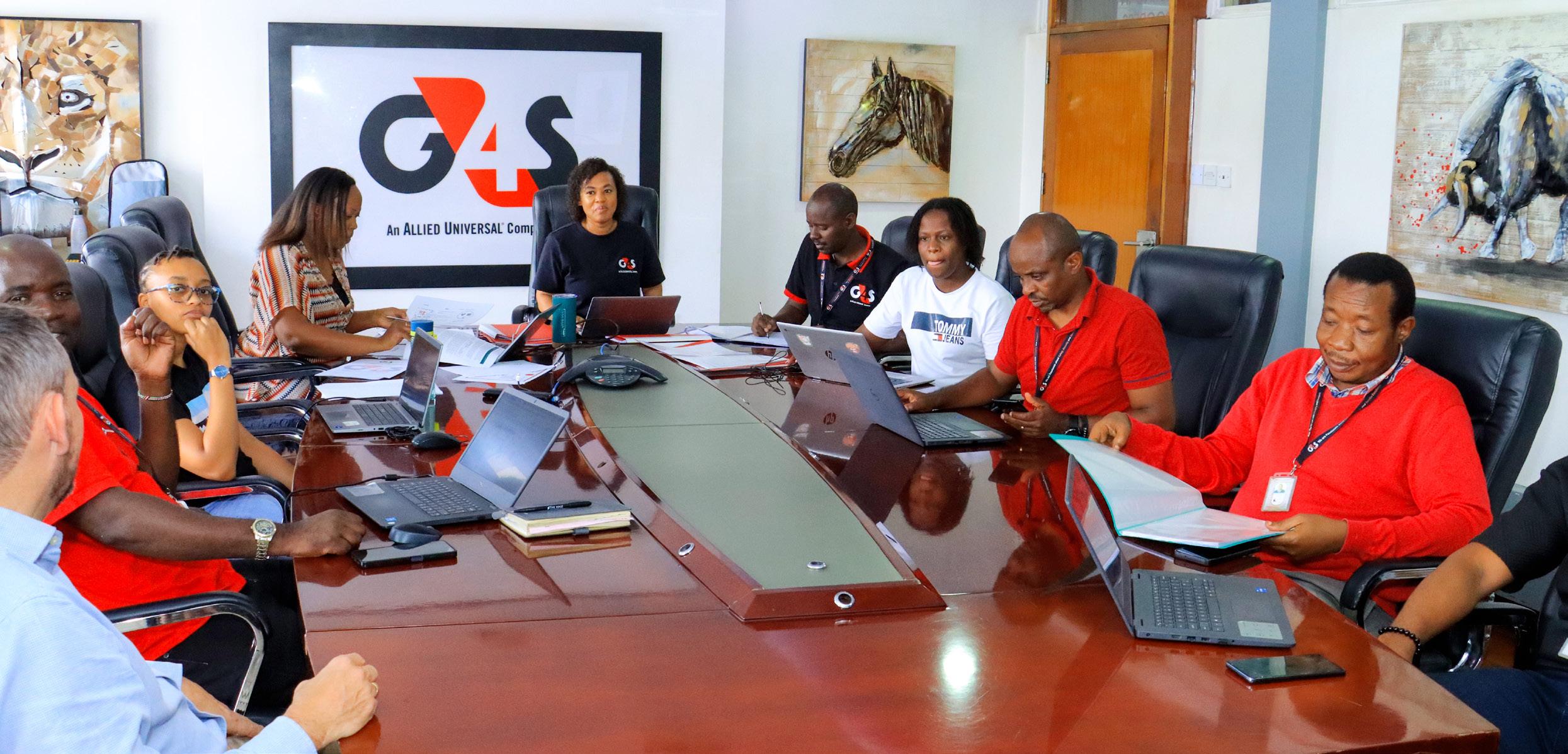
How is G4S Kenya leveraging digital tools or procurement technologies to improve transparency, efficiency, and spend visibility across procurement operations?
It’s no secret that digital transformation has redefined the role of procurement, elevating it from a transactional function to a strategic driver of business value. At G4S Kenya, we are currently in the process of partnering with a third-party vendor to implement a comprehensive e-procurement platform that will digitise the entire procure-to-pay process, from requisition to payment. This system will centralise procurement data and provide real-time visibility into spend patterns, supplier performance, and contract compliance, insights that were previously difficult to extract using manual processes. Features like electronic tendering are set to streamline the bidding process, ensuring fairness, transparency, and greater supplier engagement.
Automated workflows will reduce approval bottlenecks, shorten processing times, and minimise human error, allowing our team to focus more on strategic sourcing and value generation. Importantly, the platform’s analytics capabilities will enable granular spend analysis, helping us identify cost-saving opportunities and enforce category management strategies with far greater precision.
This shift is a major step forward in our digital journey and will play a vital role in improving transparency, driving efficiency, and strengthening procurement’s contribution to organisational performance.
What emerging trends do you see shaping the future of procurement within the security services industry in Kenya and East Africa more broadly?
The future of procurement in the security services industry is set to undergo significant transformation, shaped by several key emerging trends across Kenya and the wider East African region. Firstly, the use of data analytics and predictive intelligence will become increasingly central. Leveraging big data to forecast demand, pre-empt supply chain disruptions, and optimise inventory levels will be essential for maintaining continuity in high-risk operational environments. Secondly, ESG priorities, particularly sustainability and ethical sourcing, will take on greater prominence. Procurement teams will face increasing pressure to secure environmentally responsible solutions while ensuring human rights, fair labour practices, and local economic participation are upheld throughout the supply chain.
Thirdly, the adoption of advanced technologies such as AI and blockchain will play a transformative role. These tools will enhance vendor vetting, improve contract lifecycle management, and provide traceability across the supply chain, strengthening both transparency and risk mitigation. Lastly, strategic supplier partnerships and co-innovation will become vital. As security threats evolve, procurement must move beyond cost-saving and focus on collaborative relationships with vendors, especially those offering technological and specialised security solutions. This shift will help organisations remain agile, resilient, and competitive in a complex operating environment.
What advice would you offer to procurement professionals looking to advance in high-stakes, servicebased sectors like security and facilities management? What skills are most critical for success?
My advice to procurement professionals, whether in security, facilities management, or any other service-driven sector, is to cultivate a blend of strategic thinking and operational resilience.
Beyond mastering traditional procurement functions, it’s crucial to deeply understand the core business operations. Grasp how your sourcing decisions directly affect service delivery, customer experience, and business continuity. In high-stakes environments, the impact of procurement extends far beyond cost, it influences performance, compliance, and reputation.
The future of procurement in the security services industry is set to undergo significant transformation, shaped by several key emerging trends across Kenya and the wider East African region.
Critical skills include robust risk management capabilities, as supply chain disruptions can have serious consequences in these sectors. Strong negotiation and stakeholder management are also essential, as you’ll often be balancing varied internal needs with the realities of supplier capabilities.
Equally important is embracing digital transformation. Data analytics, e-procurement tools, and real-time visibility are no longer optional, they’re vital for optimising spend, ensuring compliance, and driving strategic value.
Lastly, develop adaptability and a proactive mindset. The ability to anticipate challenges, pivot when needed, and innovate within constraints is what will set you apart. These attributes are key to thriving and advancing in fast-moving, complex industries like security and facilities management.
G4S is a global leader in security, delivering comprehensive solutions across over 85 countries. Their services include security systems & services, facilities management, cash solutions, risk consulting, and care & justice. Known for its heritage of more than 100 years, G4S blends technology, expertise and ethics to protect people, property, and assets.
